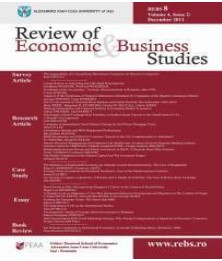UTILITY AND OPTIMIZATION’S DEPENDENCE ON DECISION-MAKERS’ UNDERLYING VALUE-BELIEF SYSTEMS
UTILITY AND OPTIMIZATION’S DEPENDENCE ON DECISION-MAKERS’ UNDERLYING VALUE-BELIEF SYSTEMS
Author(s): Jeffrey Yi-Lin Forrest, Ashkan Hafezalkotob, Louie Ren, Yong Liu, PAVANI TALLAPALLYSubject(s): Psychology of Self, Socio-Economic Research
Published by: Editura Universităţii »Alexandru Ioan Cuza« din Iaşi
Keywords: commodity consumption; holistic thinking; mod function; values and beliefs; wage rate;
Summary/Abstract: This paper investigates how a consumer’s utility and consequent optimization are determined by his/her natural endowments – self-awareness, imagination, conscience and free will. It focuses on such general utility that is a function in the dollar value of consumption, the number of hours spent on waged work and a particular value-belief system. For the third variable, we examine that it encourages the consumption of commodities and devalues waged job; it reinforces minimal commodity consumption; and it demands a non-standard optimization. While uncovering how an individual’s marginal utility from commodity consumption or waged work varies respectively with different variables, such as non-waged incomes, etc., this paper demonstrates that when an individual decides on how much commodity is to be consumed and how much labor output is to be supplied to waged work by maximizing the corresponding utility, the person’s utility and his/her method of optimization are exclusively defined by his/her value-belief system.
Journal: Review of Economic and Business Studies (REBS)
- Issue Year: 2021
- Issue No: 28
- Page Range: 125-149
- Page Count: 25
- Language: English

